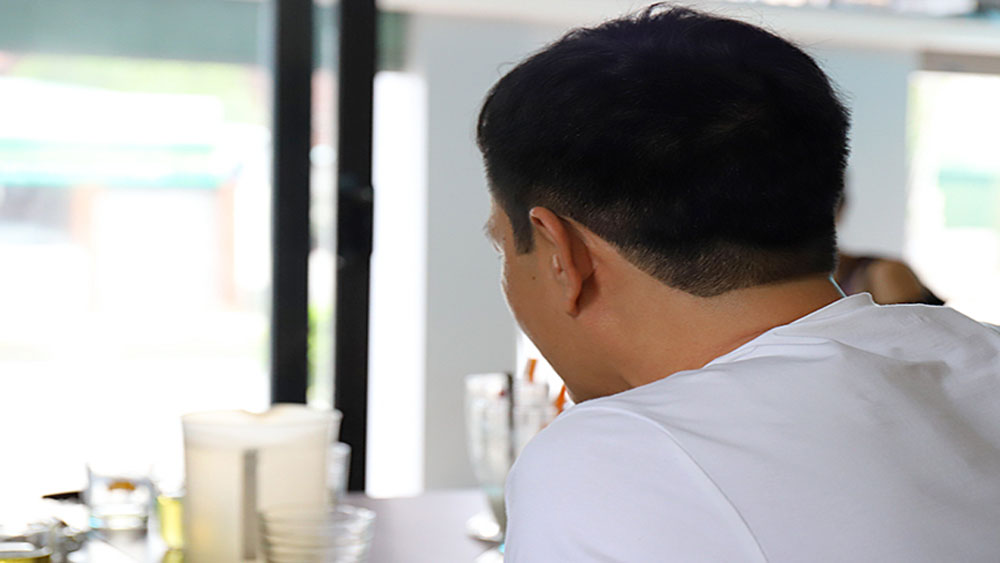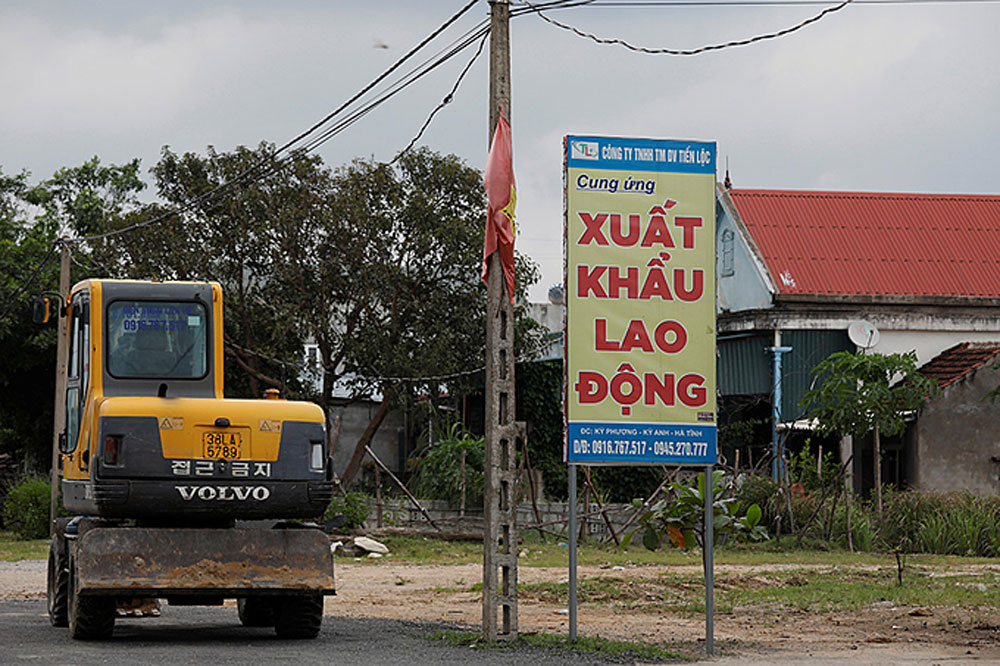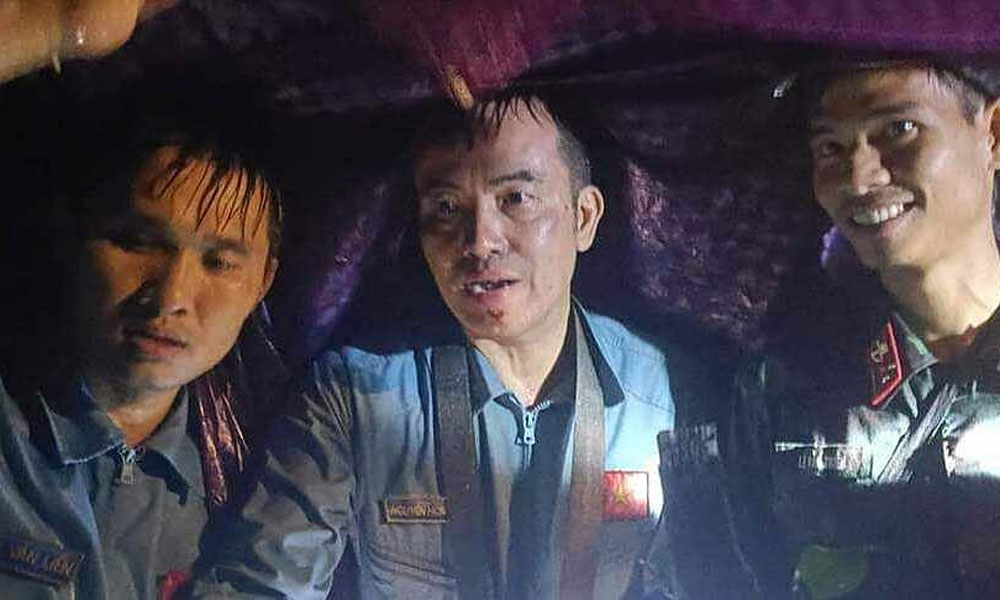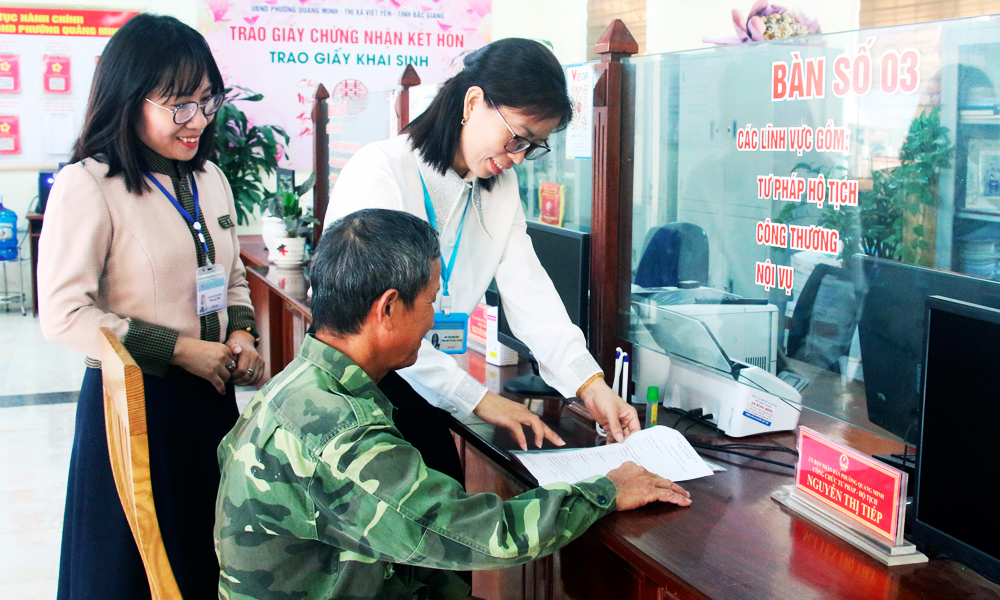Harrowing tales of horror: Migrant workers tell their stories
He remembers how suffocating a warehouse in Russia could be after he and 80 others were stuffed inside one for a month. He remembers how people were whipped for walking too slowly across the woods of Ukraine and Poland in the middle of the night. He remembers how it feels to be begging for dear life as a gun was pressed against his head in a concentration camp for migrants in France.
 |
|
Luc, 46, still remembers the horrors he experienced while trying to get to Germany for work. |
The one thing he does not have a memory of is what he was promised at the end of all the travails - a happy life if he were to leave his country and work in another.
That promise has never been fulfilled.
Luc, now 46, was one of many native from the central province of Ha Tinh who embarked on a journey to Germany in 2003 in hopes for a better life. He had no idea that a nightmare was beginning, one in which he was violently beaten, robbed of his belongings and even imprisoned.
"It was a horrific journey that lasted for a year. It almost cost me my life," said Luc.
Luc was 30 then, with a wife and a small child. Seeing how some families in the neighborhood became much better off after some of their members left the village to work abroad, he thought he could make it as well.
So he borrowed $5,000 and gave it to a local middleman for a passport to Russia for three months as a tourist before traveling to Germany.
The day he landed in Russia, he was taken by another Vietnamese to a warehouse, along with 80 others of different nationalities, all intent on going to Germany. Their passports and personal documents were destroyed, and they were confined inside the warehouse for several days with no communication with the outside world. They were fed every day, though.
After a month, the head of the trafficking ring informed the migrants that their journey from Russia to Germany has officially begun. The migrants were split into multiple groups of five to seven people each. It was decided that they would cross the woods at night, with a trafficker on a horse leading them. They would have to pass through Ukraine and Poland in the process.
"Whoever lagged behind would be whipped by the ones on the horse. As dawn approached, we would once again be locked inside a warehouse in the middle of the woods," Luc said.
"There were times when we had to lay low in the woods for a month before we could continue our journey."
In order to cross to Poland from Ukraine, the migrants had to pass through their border: a 60m-wide, 15m-deep river. There were police forces and guard dogs standing by in the area, so using boats was not an option. So the traffickers put migrants in giant plastic bags and hired divers to carry the bags to the other side of the river.
"I was so worried I couldn’t sleep; even though I knew how to swim. I hid two knives with me, just in case something went wrong, so I could tear through the bags and escape," Luc said.
"As the night fell, two divers put me in a plastic bag and I coiled myself inside. One would pull the bag from underwater, while the other made sure the bag stayed at the bottom of the river. But as we approached the other side, the cops were already waiting."
The plan had failed. Luc was forced to return to Ukraine, where he was sentenced to three and a half months in jail for illegally crossing the border.
Luc's time in prison was hardly a happy one. He was frequently beaten and tortured by his cell mates. By the time he got out, his body was covered with wounds and scars. Still, he decided to take another shot and contacted the traffickers to continue his journey to Germany.
This time, he and 12 other migrants were stuffed inside a five-seat car going to the border of the Czech Republic, each person having to lie on top of another, he recalled.
"Everyone had to stay perfectly still. Doesn’t matter if you felt itchy or cramped, you cannot scratch, you cannot whine. Some even had to urinate right in the car. Others were too fearful of the experience, they had to give up on the journey."
It took the group a month to reach the Czech border. The traffickers dropped them off about two kilometers away from the nearest border gate, leaving them to fend for themselves. Luc had to navigate an entire section of the woods on his own to get to Germany.
This time, however, he succeeded. In September 2004, he met up with another group of Vietnamese, who lived in Germany and worked with the traffickers. They were waiting for him at the edge of a forest. They whisked him away in a car. Luc had to pay them another $1,000 to get inside Germany though.
Luc joined a migrant camp and lived off welfare, about €200 ($223) a month, upon entering Germany. After getting used to his new life, he often got out to smuggle cigarettes for some extra cash.
"If everything goes well, I can make from €1,000 to €5,000 a month. Life has started to get better. I have paid off my debts and started to send money back to my family," he said.
U.K. dream
Four years after he first came to Germany, Luc was told by his friends in the U.K. that the pay was much better over there. So once again, in 2008, he contacted a group of traffickers and made it to the Calais port in France with another Vietnamese to find a way to get to the U.K.
Inside a forest near Calais, thousands of migrants from all around the world erected hundreds of tents and lived there for years, waiting for a chance to cross into the U.K. Things weren't always so peaceful in the community however.
Violent confrontations, robbery and murder were commonplace among the migrants. Luc and his companions once hired two locals as guides, but it turned out they were robbers. Upon being discovered, they threatened him by pointing a gun at his head.
 |
|
An advertising billboard for a labor export company in Ha Tinh Province, October 28, 2019. |
"I knelt down and begged [for my life], giving them some money. They hit me with their guns, we pretended to faint and they eventually left. We then ran for dear life," Luc recalled.
But it wasn't over yet. He and his companion still had to cross a ferry to get to the U.K.
There were two ways to get from Calais to the U.K. on ferries. One could pay €2,000 for traffickers to compromise truck cargoes, and migrants could hop onto those trucks on their own. Or, with the "VIP package" costing €10,000, traffickers would help migrants hide themselves inside containers. Luc and his companion decided to pay up €10,000.
Inside the container, which stores electronic devices, Luc and other migrants had to cover their heads with plastic bags so that security systems would not detect their breathing, Luc said.
"I had to constantly hold my breath. The truck was so cold, I was shivering the whole time," he recalled.
Luc did get out of Calais successfully. But upon entry into London, his group was discovered by the police. He was later deported back to Germany, and eventually, to Vietnam.
Now, Luc and his wife run a coffee shop in their hometown. But the memories of his journey to Europe 16 years ago have never faded. He has no desire to live through that again.
"That was enough. I was lucky to keep my life."
*Names of the migrant workers have been changed.
Source: VnExpress
 Bắc giang
Bắc giang















Reader's comments (0)